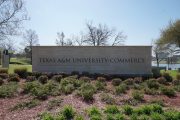
Most conservatives are already well aware of the indoctrination taking place in America’s higher institutions; however, a new study reveals the extent to which leftist professors go to covertly brainwash students into becoming the PC snowflakes who are the new norm on college campuses around the country.
A study published in May by the National Association of Scholars (NAS) reviewed 350 reading lists assigned to college freshmen across the United States and found that college professors are using those lists to advance leftist causes. These professors have railed against what they’ve dubbed “dead white authors” — e.g., Shakespeare, Dickens, etc. — and have removed them from the curriculum, opting instead for radical literature that advances leftist theories such as institutional racism, white privilege, class warfare, social justice, etc. Sadly, these readings, besides being far-left views, very rarely are academically challenging and have little to do with core curriculum.
The study by the NAS notes in its introduction, “Hundreds of American colleges and universities assign a summer reading to entering freshmen — usually one book, which the students are asked to read outside their courses. For many students, this is the only book they will read in common with their classmates.” The report contends that common reading programs are generally a good idea, as they can introduce students to rigorous intellectual standards; however, the study found that most of the colleges missed this valuable opportunity. Instead, most of the books required by common reading programs focused on diversity, race, and overall progressive politics.
The NAS study found that 73 percent of the books assigned in the 2016-2017 school year were non-fiction, 75 percent of them were published between 2010 and today, and less than two percent were written before 1900. The classics were virtually nowhere to be found. The NAS classified the large majority of books as non-academic and adhering to a single [leftist] political agenda.
“Most assignments were contemporary memoirs and popular nonfiction that endorsed politically progressive perspectives on affirmative action, gay, lesbian, and transgender life, global warming, illegal immigration, racial identity, recycling, sexism, incarceration, or wealth,” the report explained.
Many professors, according to the study, are asking students to read books that deal with non-white characters, specifically Muslim, African-American, and Latin American figures. In fact, it found that the most assigned book of this academic year was Just Mercy, a large book focused on poor blacks who are being victimized by the criminal justice system. The second most assigned book was Between the World and Me, a book written by Ta-Nehisi Coates about racism in American history and the alleged “current crisis” of racism today.
The Left understands that in order to radicalize impressionable young minds, the notions of the victim narrative and white privilege must be advanced. This has already been accomplished in a variety of ways, including through revisionist history. In an appearance on the Glenn Beck Show on Fox News in 2010, David Barton and Lucas Morel, the latter a professor at Washington and Lee University in Virginia, pointed out that many patriotic black Americans have been written out of American history in order to create a racial divide in the United States. Instead, textbooks and teachers impose a “victim narrative” on black Americans and other non-white groups and teach them to believe that the United States is not their country. The professors then blame white privilege, provoking white guilt from students, and once that is accomplished, those students will accept whatever they are told in order to avoid accusations of racism. The result? White students are made to be ashamed of their race and country, and non-white students hate America because they believe it does not belong to them.
After the students are forced to read these leftist books, they are then engaged in conversations and activities in which they discuss and reinforce the leftist ideals found within the books.
NSA spokesman David Randall said professors are using classrooms to obtain virtual “free labor” from students to advance a left-wing agenda. He told The College Fix, “It’s been like this for at least the last decade. They’re getting even more homogeneous — greater concentration on individual titles, greater concentration in subject matter — but the progressivism is much the same.”
The NAS contends that the choice of readings is virtually pigeon-holed by the schools’ mission statements, most of which no longer have anything to do with education, but are focused exclusively on progressivism.
The NAS observes, “These non-academic goals also serve as euphemisms for the more politicized goals of common reading programs.” The report continues:
Many common reading program mission statements don’t just exploit the presence of non-academic goals as a way to insert progressive propaganda. The mission statements themselves are crafted explicitly to forward progressive political goals, such as diversity (affirmative action quotas and propaganda) and multiculturalism (hostility to American culture). Where the common reading mission statements require progressive books, the choice of mediocre progressive propaganda is a feature, not a bug.
For example, Georgia State University’s mission for its First-Year Book program is to “raise awareness and tolerance of cultural likenesses and differences” and to “create a sense of community.”
Similarly, the University of Louisville’s Book-in-Common initiative “promotes self-discovery and exploration of diverse ways of thinking and being.”
The language is incredibly misleading, however, as the only “diverse ways of thinking and being” acceptable on most campuses today are those promoted by the Left. Students are no longer encouraged to “think critically,” but instead to think outside of the “conservative, heterosexual, white, Christian, male” box. That is an enormous departure from the original intent of higher education.
Additionally, the NAS contends that the common reading programs are also a consequence of schools placing administrative control in the hands of “’co-curricular’ bureaucracies.”
For example, the common reading list at the University of Iowa is sponsored by the Center for Human Rights, and cosponsors include the Office of Outreach & Engagement and the Chief Diversity Office.
At Monroe Community College, “The Common Reading Program is sponsored by The Office of Student Life and Leadership Development, Academic Services, and First Year Experience and Title III: Building a Culture of Engagement & Success.”
The report observes that the administrators involved in the reading selections do not possess the “professional training or vocation to discover what the best books are … or to teach freshmen how to discuss books critically.” The report contends that the schools’ decisions to staff reading selection committees with administrators rather than professors “reinforces the skew toward progressive propaganda.”
What’s more, the committees are more interested in advancing a political agenda than in saving money. According to the report, the inclusion of more modern books in course curriculums has also negatively impacted school budgets because the books are more expensive than classic literature, and schools tend to feel obliged to bring contemporary authors of assigned books to campus:
Mission statements that require contemporary, “relevant” books, on the theory that these are more likely to spark student interest, increase costs. The corresponding desire to bring living authors to campus further increases expenses, since authors usually require speaking fees. Common book programs, as they are currently constituted, generally have to assume the direct costs of both a copyright premium and an author visit.
The NAS makes several recommendations at the end of the report — including seeking better quality, more academically challenging books for required readings, revising mission statements, consulting a wide variety of peers on book selections, and tightening college admission standards. The report also provides a list of 110 recommended books for any common reading program, comprised largely of classics, biblical books, and significantly more challenging material. Unfortunately, if colleges do not view their mediocre and leftist reading lists as a problem, it is not likely they will adhere to these suggestions.
The best way to combat indoctrination on college campuses is for parents to adequately instill in their children a love of God, country, and family, the ability to think critically, and the strength to challenge their classmates and professors when required. Parents should also be vigilant in their research when selecting colleges for their children so that they may avoid campuses that have become so overrun by progressivism and political correctness that they no longer are capable of executing their tasks of educating students to think for themselves.
Photo: clipart.com




